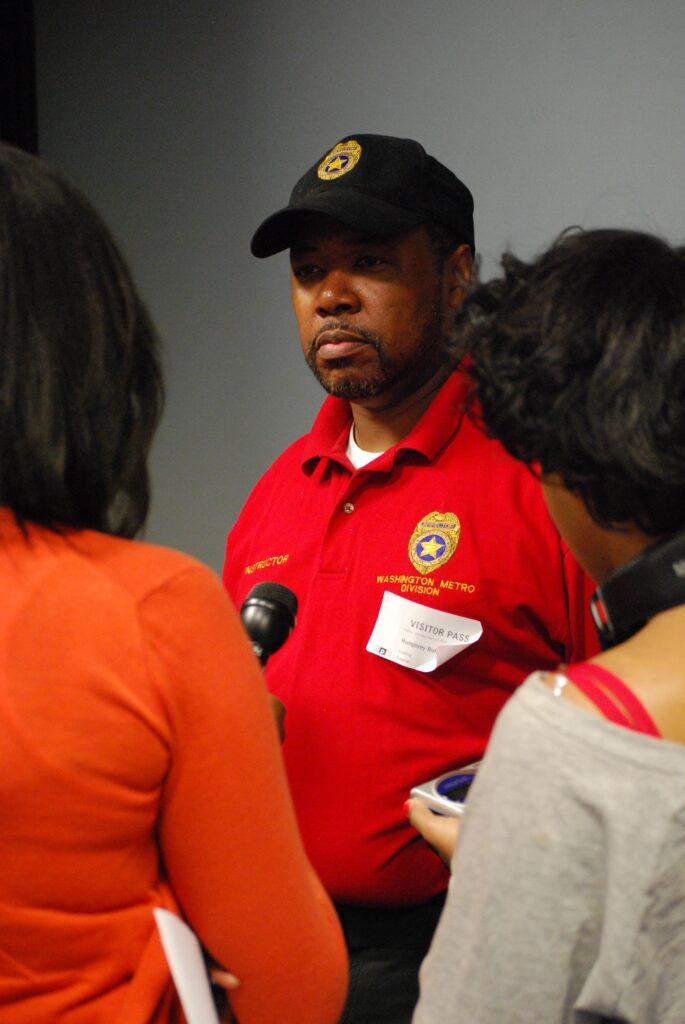
By Josh Samson
UJW Staff
WASHINGTON – The year was 2001 and Cpl. Humphrey Rutherford spied a suspicious truck circling the parking lot near a postal facility.
Already on alert because of the anthrax scare gripping the nation at the time, Rutherford pulled over the driver, a white male in his late 20s. He noticed the man had been drinking.
While Rutherford was waiting for back-up, the driver unexpectedly reached behind his back. Rutherford, his weapon already drawn, was ready to shoot the suspect, but quickly realized the man was only reaching for his wallet.
It was a close call, but Rutherford says his training has helped him deal life and death situations such as the wayward truck driver.
He is a police officer in the United States Postal Inspection Service (USPIS).
Rutherford said such decisions are only part of the job for members of the USPIS, but it makes a big difference in their lives.
“Although it would lawfully be right (to shoot the man), I wouldn’t be able to sleep at night,” Rutherford recently told students journalists at a news conference at National Public Radio.
Rutherford, 52, has been in law enforcement since 1996. He gave a glimpse into the life of a USPIS officer.
“We’re there as customers – as you are. But we’re also there to protect you,” he said.
Before becoming an officer, Rutherford underwent training at the Federal Law Enforcement Training Center in Glynn County, Ga. During his two months there, he was armed with only two weapons, a police baton and .40-caliber pistol.
Rutherford said he learned all the rules of law enforcement during his training, especially protection.
“Safety is paramount. I couldn’t say that (enough),” he said.
He also pointed out that the postal service works daily with other federal agencies to fight crime. He said the agencies work as one big family, even though they sometimes compete against each other.
“They work the same way as a family. We have to be respectful to everyone,” Rutherford said.
In law enforcement, Rutherford said, everyone has to look out for each other, the way a family would. But they also have to uphold the common good.
“I work with the USPIS, but I work with them all,” he said. “Everyone has a liaison. Everyone has a person who’s experienced and is best in their field.”


